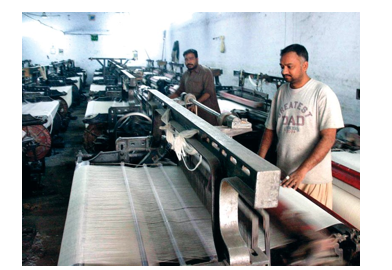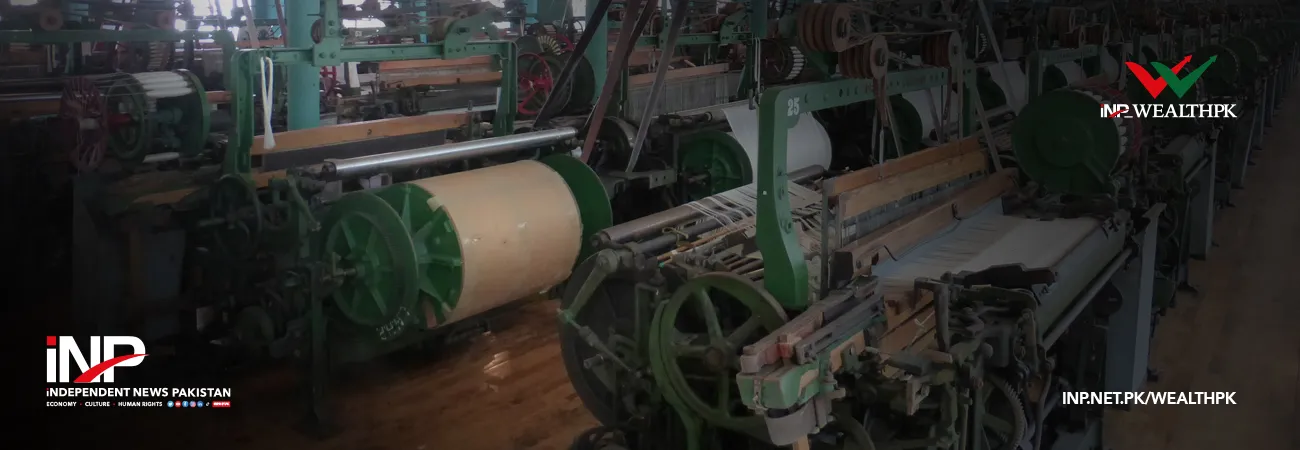INP-WealthPk
Ahmed Khan Malik
The Karachi's power looms are fighting a battle for survival due to the rising costs of production and stagnant exports of the textile sector.

The last two and half years have been particularly challenging for the sector amid a slowdown in economic activity. "The latest blow came in the form of heavy taxation measures introduced in the budget for the current financial year, which would further push down the sector. The taxes imposed in the budget should be reduced, otherwise the small and medium industries will face closures," Tabbasum Hussain, Secretary General Power Looms Association, Karachi, warned. Talking to WealthPK, he said that power looms businesses were hoping the government would prepare the budget in the best economic interest of the country. "We are deeply disappointed that the government lacks the commitment to develop the country's economy, businesses and industry." Tabbasum said that the government should realise that the power looms sector is critical for generating the much-needed revenue and creating employment opportunities.
"When power looms are closed, where will the government collect taxes?" He requested Prime Minister Shehbaz Sharif, Finance Minister Muhammad Aurangzeb and Commerce Minister Jam Kamal to reduce the taxes, electricity and gas rates so as to bring down the cost of production. "If power looms are shut down, the government will lose a strong revenue stream, and thousands of workers will be laid off. The government should revise the taxes to keep the industrial wheel spinning." After Faisalabad, Karachi has the second largest number of power looms, and many have been closed down over the last two years due to economic slump. "We had very bright days when textile exports were going up, especially after the Covid-19 pandemic, and power looms were running at an optimal level," Siddique Hussain, a power looms owner in Baldia Town of Karachi, told WealthPK.
"We were even facing the shortage of labour, especially skilled labour, as the textile industry was exporting at the maximum level some three years ago," he said, adding that first dollar crunch, then high electricity rates and now heavy taxation measures have pushed the sector against the wall. Power loom units use 'shuttle' looms, which manufacture both silk (almost exclusively produced on shuttle looms) and cotton. In Pakistan, power looms mainly operate in Karachi, Faisalabad, Multan, Kasur, and Jhang, with 30,000 medium-sized power loom units located in Karachi. Small power loom units usually comprise six to eight looms managed by 10 to 12 workers, while the medium units comprise up to 50 looms manned by 60 to 80 workers.
Credit: INP-WealthPk













